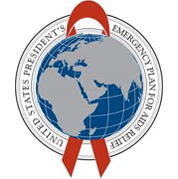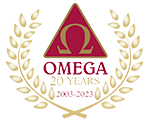The United States President’s Emergency Plan for AIDS Relief (PEPFAR)
Omega Pepfar Project Involvement
PEPFAR is the cornerstone and largest component of the U.S. President’s Global Health Initiative. With a special focus on improving the health of women, new-borns and children, the Global Health Initiative’s goal is to save the greatest number of lives by increasing and building upon what works and, then, supporting countries as they work to improve the health of their own people.

Omega has been a part of this program since 2007 as the sole security provider in 14 of the 16 focus countries (in Vietnam and Guyana – security is provided by the police). Services included static guarding, electronic security monitoring, road escorts and verifications of consignments.
The original focus Countries to receive donated medicines were:
Omega held a contract with Fuel Africa Logistics for the provision of security services to protect HIV/Aids medicines donated by the United States to 18 countries around the world with the highest HIV/Aids infection rate.
The project is referred to as the PEPFAR project (President’s Emergency Plan for Aids Relief)
• Côte d’Ivoire
• Ethiopia
• Guyana
• Haiti
• Kenya
• Mozambique
• Namibia
• Rwanda
• South Africa
• Tanzania
• Uganda
• Vietnam
• Zambia
• Malawi
• Angola
Where Omega did not operate directly, strategic alliance contracts were entered into with suitably qualified and experienced local Security Companies to provide the service. Omega operated either directly or through strategic alliance partners under management of the Omega Key Account Manager in 16 of the 18 distribution countries.
• Medicine shipments arrive by air or by sea.
• Security teams meet the shipment when unloaded from aircrafts or sea containers.
• Verify the shipment using the shipping documentation for correct quantity, type, batch number, damage, lost cartons etc.
• Take photographs of all damage cartons or product.
• Ensure the integrity and safety of the drug shipment at all times.
• Report any damage, loss or any other incident that could jeopardize the shipment of medicines immediately to the Omega Key Account Manager.
• Oversee loading of the shipment on trucks and escort trucks to the consignee premise.
• Oversee the handing over process and eventual signing of a Proof of Delivery (POD) document.
• Submit a full report with photographs to the Omega Key Account Manager who reported back to the SCMS Global Security Coordinator.
• Shipments were also escorted across as many as three different countries from the Regional Distribution Warehouses located in Accra (Ghana), Nairobi (Kenya) and Centurion (Pretoria South Africa). Distances exceeding 3000 kilometres were travelled for some shipment deliveries and security teams escorted shipments all the way.
• Security presence, involvement, assistance and intervention has prevented, removed and ensured safe delivery of shipments in many occasions.
• Omega also provided security guarding protection services at the Regional Distribution Warehouses located in Accra (Ghana) and Nairobi (Kenya).
• An advanced Closed Circuit Television (CCTV) system and intruder alarm system had been installed in the Kenya and Ghana bond stores.
• Since the inception of the protection project in 2006, Omega had protected medicine shipments in excess of a billion US Dollars successfully with no losses that could be contributed to a security problem or failure.
